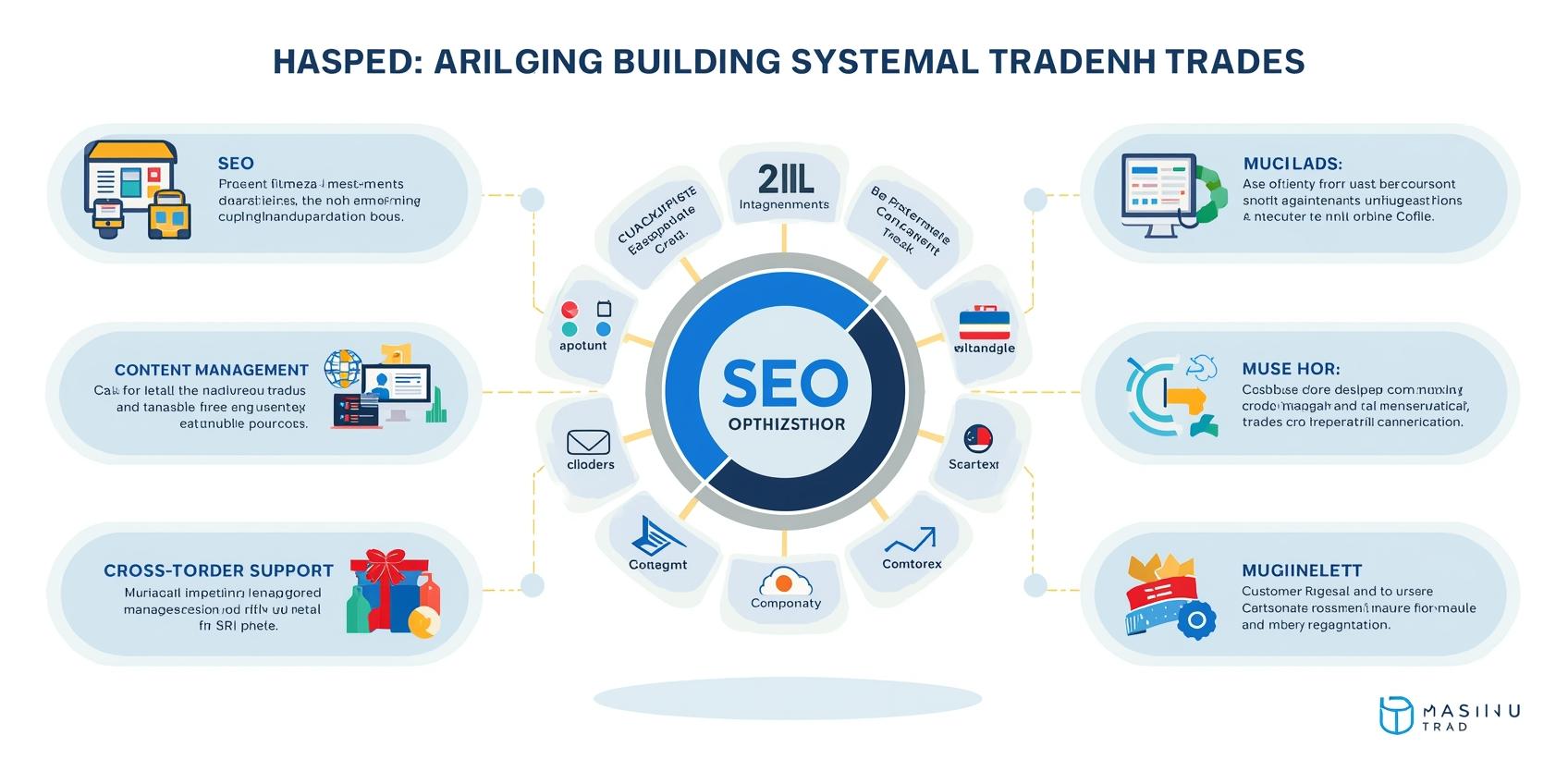I. Functional completeness and module coverage
When choosing a website building system for international trade, the first thing to consider is whether its functionality is comprehensive. According to data from the International Trade Centre (ITC) , websites with broad functionality generally outperform websites with limited functionality in terms of customer retention and conversion rates. Businesses should focus on whether core modules such as SEO optimization, content management, product display, cross-border payments, multilingual support, and customer management are complete to meet the needs of different markets.
II. SEO and Content Management Capabilities
CECA points out that the SEO and content management capabilities of a website building system directly impact overseas search engine visibility. Businesses should choose systems that support multilingual SEO optimization, meta tag management, URL normalization, internal link structure optimization, and automated content publishing to improve the efficiency of their website being indexed by search engines and enhance brand visibility in target markets.
III. Integration of Cross-border E-commerce and Payment
Cross-border e-commerce support is a crucial consideration for foreign trade website building systems. ISC research shows that systems supporting multi-currency payments, logistics tracking, order management, and international settlement can effectively reduce barriers to overseas customer purchases and improve order conversion rates. When selecting a system, businesses need to ensure that the payment and logistics modules are compatible with mainstream platforms to guarantee transaction security and smooth operation.
IV. Customer Management and Marketing Capabilities
Efficient customer management and marketing tools can improve customer accuracy and repeat purchase rates. By leveraging CRM systems, automated emails, customer segmentation, and marketing data analytics, businesses can use foreign trade customer acquisition software to precisely develop potential customers and optimize marketing strategies. GEA data shows that website systems integrating customer management functions have, on average, increased customer conversion rates by approximately 25%-40%.
V. Cost-effectiveness and performance-to-price ratio
A robust website building system for foreign trade not only needs comprehensive functionality but also requires careful consideration of cost and long-term performance. Businesses should evaluate the system based on factors such as price, maintenance fees, scalability, and technical support. A well-planned investment can optimize resources while ensuring system stability and efficient operation, thus facilitating successful expansion into overseas markets.
By considering the above five key points, businesses can make targeted decisions when choosing a foreign trade website building system, achieving full-process optimization from system setup to customer conversion.
Use the Pinshop website building platform now to quickly build an efficient international standard foreign trade website, and combine it with foreign trade customer acquisition software to achieve precise customer development and conversion. 








